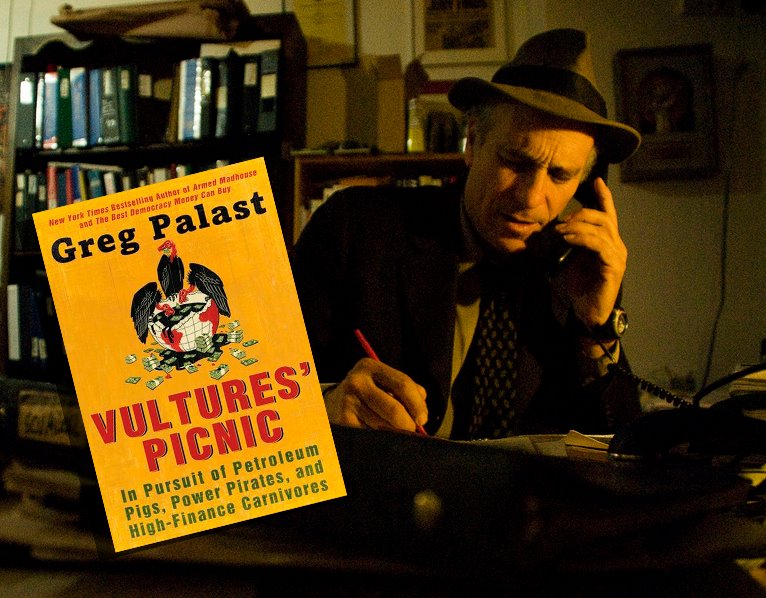If you prefer your fairy tales unsoiled by facts, read no further. If you want the uncomfortable truth, begin with this: A phone call to Baghdad to Saddam's Palace on the night of April 21, 2003. It was Secretary of Defense Donald Rumsfeld on a secure line from Washington to General Jay Garner.
The General had arrives in Baghdad just hours before to take charge of the newly occupied nation. The message from Rumsfeld was not a heartwarming welcome. Rummy told Garner, Don't unpack, Jack -- you're fired.
What had Garner done? The many-starred general had been sent by the President himself to take charge of a deeply dangerous mission. Iraq was tense but relatively peaceful. Garner's job was to keep the peace and bring democracy.
"My preference," Garner told me in his understated manner, "was to put the Iraqis in charge as soon as we can and do it in some form of elections."
But elections were not in The Plan.
The Plan was a 101-page document to guide the long-term future of the land we'd just conquered. There was nothing in it about democracy or elections or safety. There was, rather, a detailed schedule for selling off "all [Iraq's] state assets" -- and Iraq, that's just about everything -- "especially," said The Plan, "the oil and supporting industries." Especially the oil.
There was more than oil to sell off. The Plan included the sale of Iraq's banks, and weirdly, changing it's copyright laws and other odd items that made the plan look less like a program for Iraq to get on its feet than a program for corporate looting of the nation's assets. (And indeed, we discovered at BBC, behind many of the odder elements -- copyright and tax code changes -- was the hand of lobbyist Jack Abramoff's associate Grover Norquist.)
But Garner didn't think much of The Plan, he told me when we met a year later in Washington. He had other things on his mind. "You prevent epidemics, you start the food distribution program to prevent famine."
Seizing title and ownership of Iraq's oil fields was not on Garner's must-do list. He let that be known to Washington. "I don't think [Iraqis] need to go by the U.S. plan, I think that what we need to do is set an Iraqi government that represents the freely elected will of the people." He added, "It's their country " their oil."
Apparently, the Secretary of Defense disagreed. So did lobbyist Norquist. And Garner incurred their fury by getting carried away with the "democracy" idea: he called for quick elections -- within 90 days of the taking of Baghdad.
But Garner's 90-days-to-elections commitment ran straight into the oil sell-off program. Annex D of the plan indicated that would take at least 270 days -- at least 9 months.
Worse, Garner was brokering a truce between Sunnis, Shias and Kurds. They were about to begin what Garner called a "Big Tent" meeting to hammer out the details and set the election date. He figured he had 90 days to get it done before the factions started slitting each other's throats.
But a quick election would mean the end of the state-asset sell-off plan: An Iraqi-controlled government would never go along with what would certainly amount to foreign corporations swallowing their entire economy. Especially the oil. Garner had spent years in Iraq, in charge of the Northern Kurdish zone and knew Iraqis well. He was certain that an asset-and-oil grab, "privatizations," would cause a sensitive population to take up the gun. "That's just one fight you don't want to take on right now."
But that's just the fight the neo-cons at Defense wanted. And in Rumsfeld's replacement for Garner, they had a man itching for the fight. Paul Bremer III had no experience on the ground in Iraq, but he had one unbeatable credential that Garner lacked: Bremer had served as Managing Director of Kissinger and Associates.
(Note: You can view every article as one long page if you sign up as an Advocate Member, or higher).





